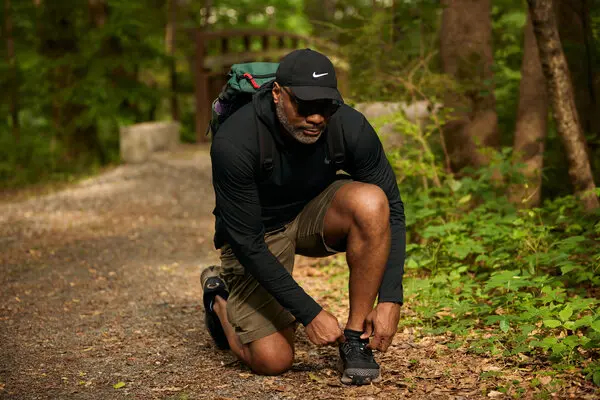Embarking on an overnight hike can be an exhilarating adventure, offering a chance to immerse oneself in nature and disconnect from the hustle and bustle of daily life. However, proper preparation is paramount to ensure a safe and enjoyable experience in the great outdoors. From essential gear to safety measures, this guide will cover everything you need for a successful overnight hike.
1. Planning and Preparation
Before setting out on your overnight hike, thorough planning and preparation are essential. Start by researching your chosen trail, considering factors such as terrain, elevation gain, weather conditions, and available amenities like water sources and campsites. Obtain any necessary permits or permissions required for your hike, and familiarize yourself with the area’s regulations and Leave No Trace principles.
Create a detailed itinerary outlining your route, including estimated hiking times and potential rest stops or campsites. Share this itinerary with a trusted friend or family member, along with your expected return time, as a safety precaution.
2. Essential Gear
Having the right gear can make all the difference in the comfort and safety of your overnight hike. Here’s a list of essential items to pack:
Backpack: Choose a comfortable, properly fitting backpack with enough capacity to carry all your gear and supplies.
Tent or Shelter: A lightweight tent or shelter provides protection from the elements and a place to rest at night.
Sleeping Bag and Sleeping Pad: Ensure you have a sleeping bag rated for the expected temperature range and a sleeping pad for insulation and comfort.
Navigation Tools: Carry a map, compass, or GPS device to help you navigate the trail and avoid getting lost.
First Aid Kit: Pack a compact first aid kit containing essentials like bandages, antiseptic wipes, pain relievers, and any necessary medications.
Water and Water Filtration: Stay hydrated by carrying an adequate supply of water or a water filtration system to purify water from natural sources.
Food and Snacks: Pack lightweight, high-energy foods like trail mix, energy bars, and dehydrated meals to fuel your hike.
Clothing Layers: Dress in layers to adjust to changing weather conditions, including moisture-wicking base layers, insulating mid-layers, and a waterproof outer layer.
Headlamp or Flashlight: A reliable light source is crucial for navigating after dark and performing tasks around camp.
Multi-tool or Knife: Carry a versatile tool for tasks like cutting cord, preparing food, and making repairs.
Fire Starter: Pack waterproof matches, a lighter, or a fire starter kit for building a campfire if permitted and necessary.
3. Safety Measures
Safety should always be a top priority when hiking, especially on overnight trips where unforeseen challenges can arise. Take the following precautions to minimize risks:
Leave No Trace: Practice Leave No Trace principles to minimize your impact on the environment and preserve the wilderness for future generations.
Weather Monitoring: Stay informed about weather conditions before and during your hike, and be prepared to adjust your plans accordingly.
Emergency Communication: Carry a fully charged cell phone, satellite messenger, or personal locator beacon for emergency communication in remote areas.
Wildlife Awareness: Familiarize yourself with any potential wildlife hazards in the area, such as bears or venomous snakes, and take appropriate precautions to avoid encounters.
Stay Hydrated and Fueled: Drink plenty of water and eat regular meals and snacks to maintain energy levels and prevent dehydration and fatigue.
Buddy System: Hike with a companion whenever possible, and never leave anyone behind or hike alone in unfamiliar or hazardous terrain.
Know Your Limits: Be honest about your fitness level and hiking experience, and don’t push yourself beyond your capabilities. Take breaks as needed and listen to your body.
4. Leave No Trace Ethics
Responsible outdoor ethics are essential to preserve the natural beauty and integrity of wilderness areas. Follow these Leave No Trace principles to minimize your impact:
Plan Ahead and Prepare: Proper planning reduces the need for resource-intensive rescues and minimizes damage to trails and campsites.
Travel and Camp on Durable Surfaces: Stick to established trails and campsites to avoid trampling vegetation and disturbing fragile ecosystems.
Dispose of Waste Properly: Pack out all trash and waste, including biodegradable items like food scraps and toilet paper. Use designated restroom facilities or bury human waste at least 200 feet away from water sources.
Leave What You Find: Resist the temptation to take souvenirs from the wilderness, such as rocks, plants, or artifacts. Leave natural and cultural objects undisturbed for others to enjoy.
Minimize Campfire Impact: Use established fire rings where available, or bring a portable stove for cooking. Only build fires in designated areas and adhere to any fire restrictions in place.
Respect Wildlife: Observe wildlife from a distance and avoid approaching or feeding animals. Keep food and scented items securely stored to prevent attracting wildlife to your campsite.
5. Conclusion
Embarking on an overnight hike offers a rewarding opportunity to connect with nature and challenge yourself in the great outdoors. By adequately preparing with the right gear, safety measures, and Leave No Trace ethics, you can ensure a safe, enjoyable, and environmentally responsible experience on the trail. So pack your bags, lace up your boots, and set out for an unforgettable adventure under the stars.


